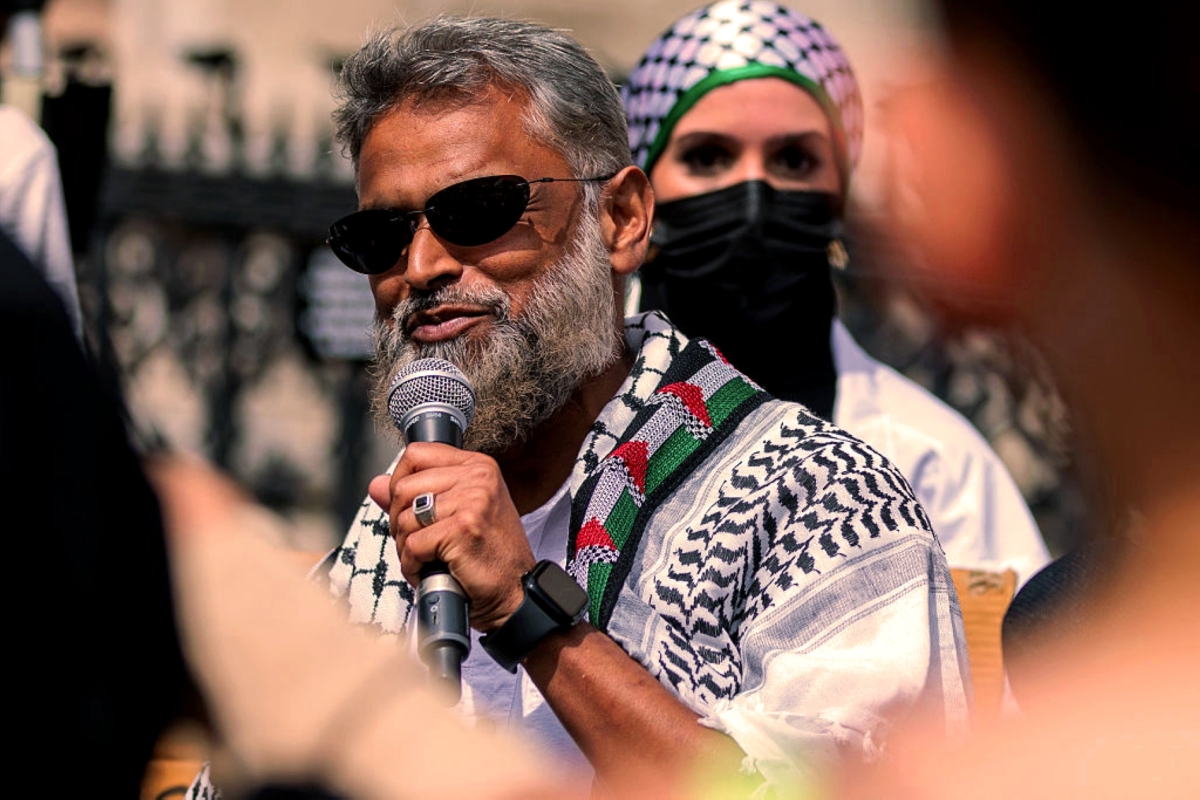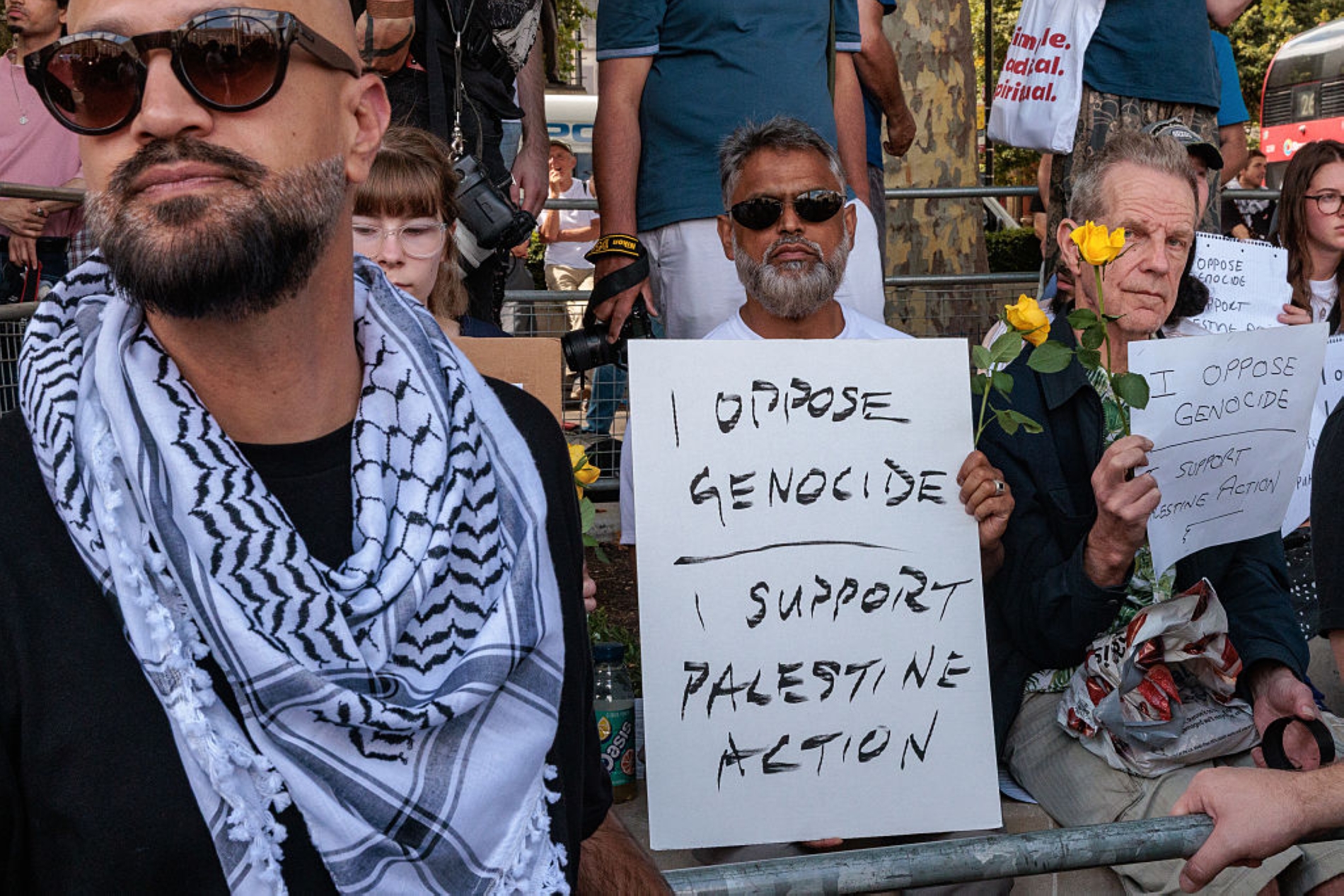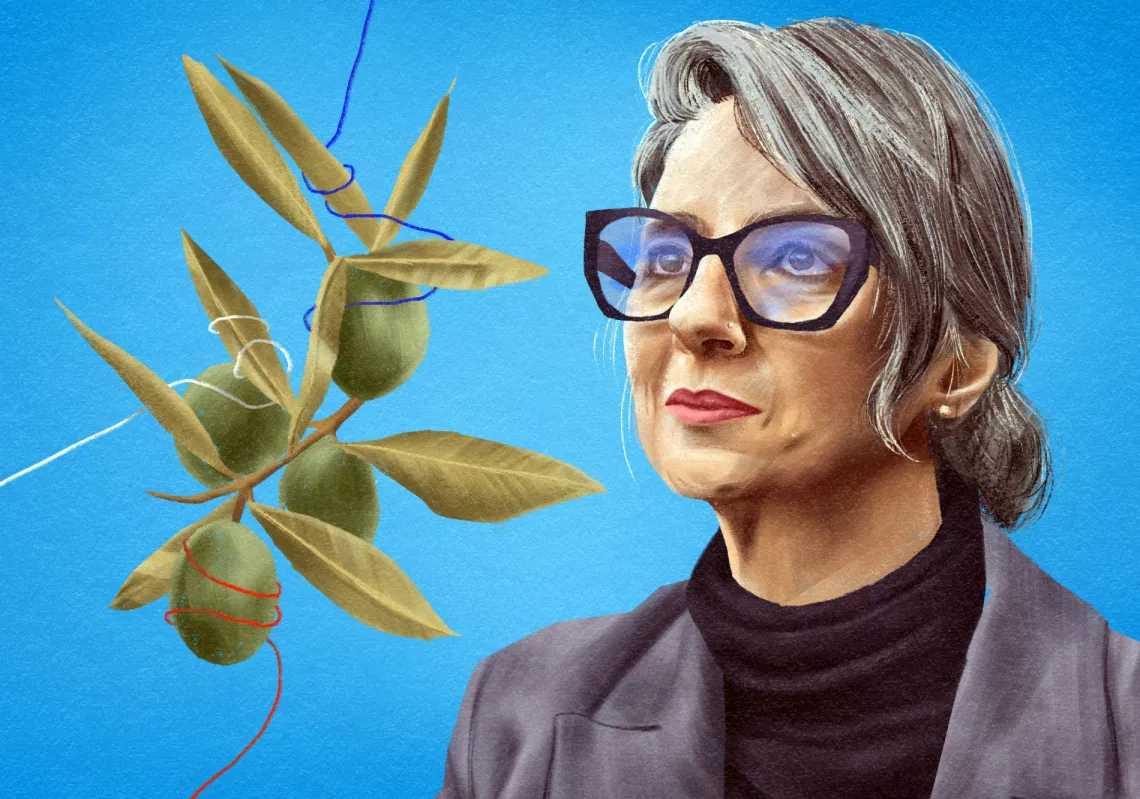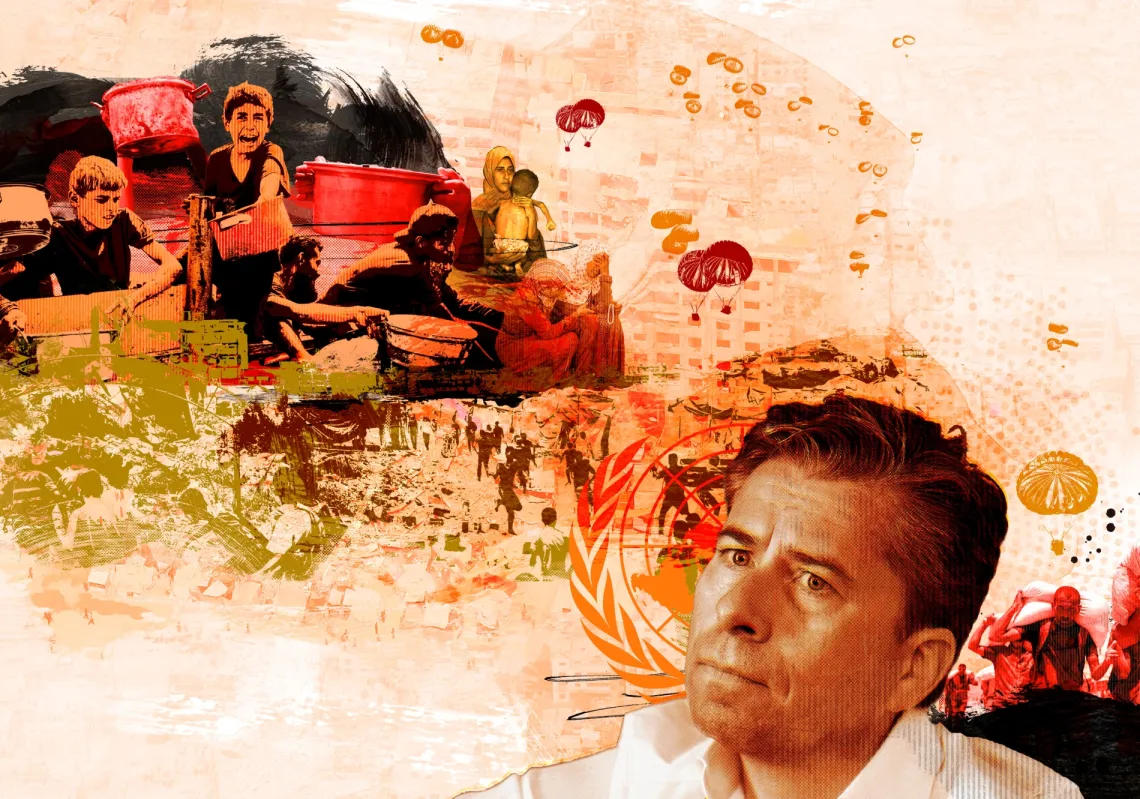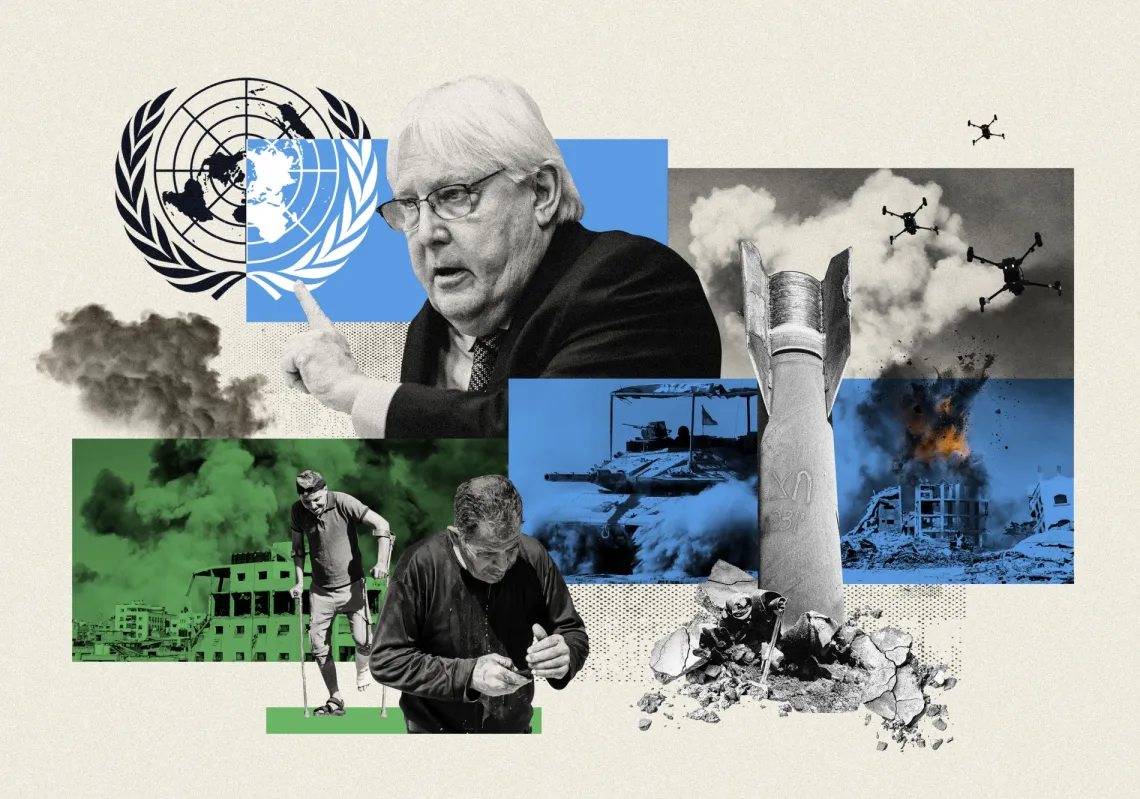When police in London arrested over 460 people during a recent pro-Palestine gathering in Parliament Square, those detained included Moazzam Begg, 57, a former Guantanamo Bay detainee.
“This isn’t about Palestine Action. It’s about the children of Gaza, it’s about the men of Gaza, it’s about the women of Gaza, and it’s about a genocidal state,” Begg said in his address to the crowd shortly before his detention.
But in fact, his arrest was the culmination of days of careful planning meant to send a message—that protesters were able to overwhelm the police as they sought to challenge the government’s decision to brand Palestine Action a terror organisation.
The Metropolitan police said it was the most arrests it had made related to a single operation in at least the past decade and that a “significant number of people” at the event were seen “displaying placards expressing support for Palestine Action”. Police said those arrested had been taken to processing points in Westminster and any whose details could be confirmed were bailed on condition they didn’t attend further Palestine Action support events.
Moazzam Begg was arrested under Section 13 of the Terrorism Act for opposing genocide.
He exposed the absurdity of Britain’s mass terrorism arrests, where elderly people, doctors, and wheelchair users were arrested for supporting Palestine.
Police officers were unsure of the... pic.twitter.com/0BZ5AyF8mp
— CAGE International (@CAGEintl) August 9, 2025
Tortured at Guantanamo
Moazzam Begg, born 5 July 1968 in Sparkhill, Birmingham, is a British Pakistani who was held in extrajudicial detention by the US government in the Bagram Theatre Internment Facility and the Guantanamo Bay detainment camp in Cuba for nearly three years. Seized by Pakistani intelligence at his home in Pakistan in February 2002, he was transferred to the custody of US Army officers, who held him in the detention centre at Bagram, Afghanistan, before transferring him to Guantanamo Bay, where he was held until January 2005.
The US authorities held Begg as an enemy combatant, claiming he was an Al-Qaeda member who recruited for and provided money for Al-Qaeda training camps, and himself trained there to fight US or allied troops. Begg acknowledged having spent time at two non-Al-Qaeda camps in Afghanistan in the early 1990s, as well as providing some financial support to fighters in Bosnia and Chechnya, but denies that he was ever involved in terrorism.
Begg says that he was tortured by guards at Bagram and saw two detainees beaten to death. Military coroners subsequently ruled that the two deaths were homicides, but US military spokesmen denied Begg's story at the time. Later, a 2005 military investigation into reports of abuse at Bagram confirmed that American guards killed the men.
Following a “long public outcry” in the UK over the detention of British nationals, in 2004, the UK government intervened on behalf of the British citizens being detained at Guantanamo Bay. President George W. Bush had Begg released without charge on 25 January 2005, despite Pentagon, CIA, and FBI objections.


